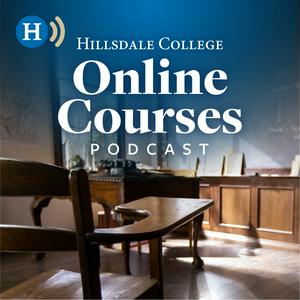On this episode of The Hillsdale College Online Courses Podcast, Jeremiah and Juan discuss whether or not the American Founding supported slavery before introducing Kevin Portteus.
The United States Constitution was designed to secure the natural rights proclaimed in the Declaration of Independence. Signed by Constitutional Convention delegates on September 17, 1787—Constitution Day—it was ratified by the American people and remains the most enduring and successful constitution in history.
In this twelve-lecture course, students will examine the political theory of the American Founding and subsequent challenges to that theory throughout American history. Topics covered in this course include: the natural rights theory of the Founding, the meaning of the Declaration and the Constitution, the crisis of the Civil War, the Progressive rejection of the Founding, and the nature and form of modern liberalism.
Contrary to the Founders’ guiding principle of equality and their hopes for eventual abolition, slavery not only survived but spread and became entrenched in the South. Subsequently, a new ideology arose in defense of slavery, which rejected the principles of the Founding and fueled the sectional crisis that led to the Civil War.
See omnystudio.com/listener for privacy information.


